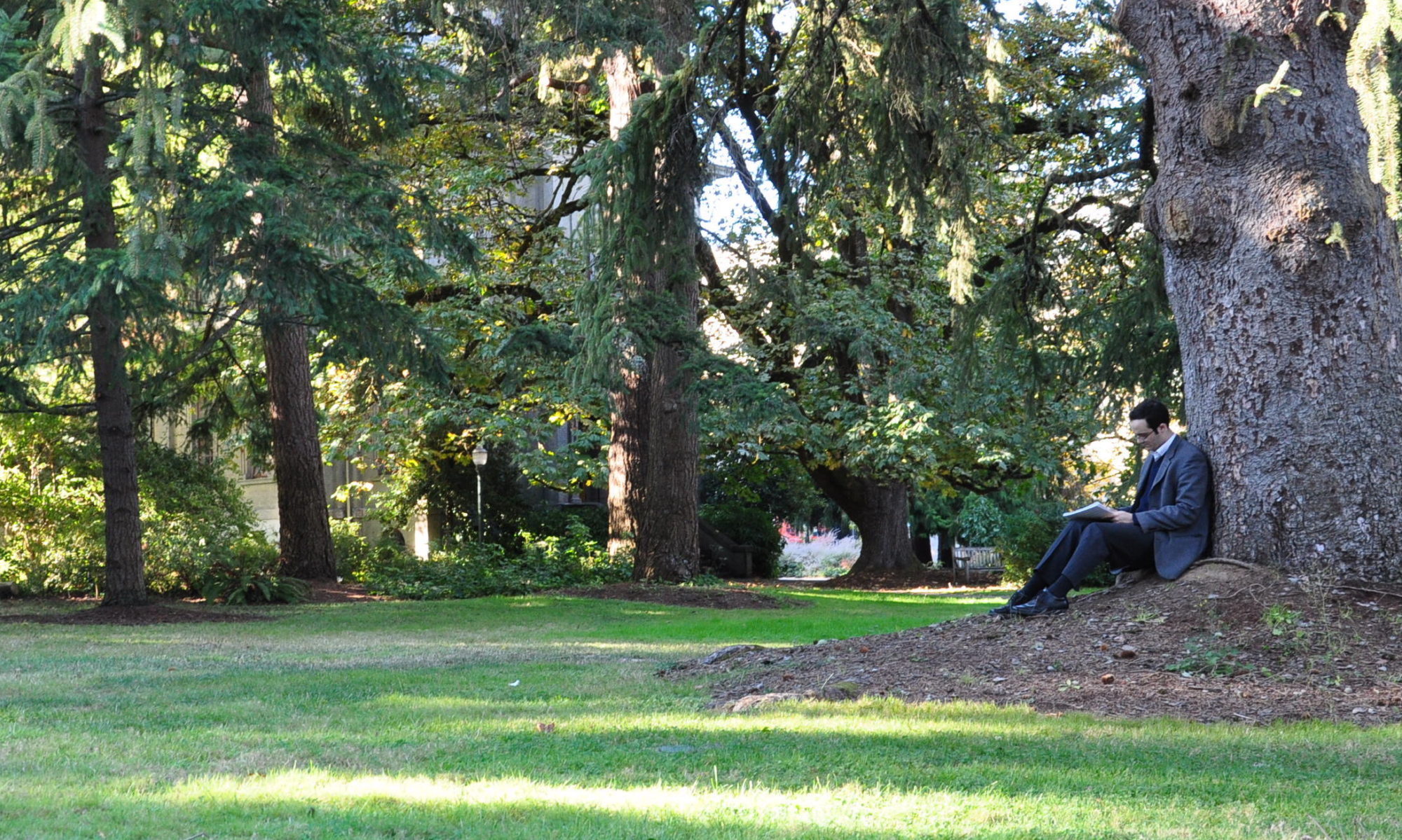Short Bio

Samuel Lord Kalcheim (he/him) composes in a variety of styles, old and new, and is dedicated to writing music both emotionally and intellectually satisfying, balancing tender lyricism with tight and complex formal architecture. Building on an expertise in 18th and 19th c. styles and forms, Samuel writes expressive new music for today’s sensibilities. New York City Concert Review wrote of Samuel’s 2023 New York concert, “Mr. Kalcheim is proving to be a promising and accomplished young composer with much to offer the world… Stylistically, his music…reflects a wide range of influences from Romanticism, Impressionism, early 20th-century Russian composers, and much more, but it retains overall its rootedness in a traditional tonal language. More importantly than that, though, it reflects a fidelity to his own creativity, which he cultivates with integrity and intelligence.” On June 20th, Centaur Records will be releasing Samuel’s debut album, Samuel Lord Kalcheim: Music for Cello, featuring Juan Aguilera Cerezo and Santiago Báez. A dedicated teacher, he is currently completing a textbook, Keyboard Harmony: A New Schematic Approach. Samuel’s past and present collaborations include works for Contemporaneous, TAK Ensemble, Estelí Gomez, the Delgani String Quartet, University of Oregon’s Musicking Conference, the Elsewhere Ensemble, and pianist Asiya Korepanova. A master of classically inspired musical form, Samuel’s largest body of work is chamber music. Samuel is also an expert composer for orchestra/chamber orchestra and has more recently completed two major song cycles—one for non-binary tenor Kristyn Michele based on his own translations of ancient texts, and a more recently, A New York Litany, written on poetry by Judy Prescott, and to be performed by three major U.S. opera singers. An avid proponent of the music of our time, Samuel supports the work of his colleagues as conductor, performer, impresario and pedagogue. Samuel is an experienced teacher of theory, musicianship and composition in university settings as well as privately. In teaching, he emphasizes close score study and the embodied learning of harmony.
Long Bio
Samuel Lord Kalcheim (he/him) composes in a variety of styles, old and new, and is dedicated to writing music both emotionally and intellectually satisfying, balancing tender lyricism with tight and complex formal architecture. Building on an expertise in 18th and 19th c. styles and forms, Samuel writes expressive new music for today’s sensibilities. New York City Concert Review wrote of Samuel’s 2023 New York concert, “Mr. Kalcheim is proving to be a promising and accomplished young composer with much to offer the world… Stylistically, his music…reflects a wide range of influences from Romanticism, Impressionism, early 20th-century Russian composers, and much more, but it retains overall its rootedness in a traditional tonal language. More importantly than that, though, it reflects a fidelity to his own creativity, which he cultivates with integrity and intelligence.” On June 20th, Centaur Records will be releasing Samuel’s debut album, Samuel Lord Kalcheim: Music for Cello, featuring Juan Aguilera Cerezo and Santiago Báez. A dedicated teacher, he is currently completing a textbook, Keyboard Harmony: A New Schematic Approach.
Samuel’s past and present collaborations include works for Contemporaneous, TAK Ensemble, Estelí Gomez, the Delgani String Quartet, University of Oregon’s Musicking Conference, the Elsewhere Ensemble, and pianists Asiya Korepanova. A master of classically inspired musical form, Samuel’s largest body of work is chamber music. Samuel is also an expert composer for orchestra/chamber orchestra and has more recently completed two major song cycles—one for non-binary tenor Kristyn Michele based on his own translations of ancient texts, and a more recently, A New York Litany, written on poetry by Judy Prescott, and to be performed by three major U.S. opera singers. An avid proponent of the music of our time, Samuel supports the work of his colleagues as conductor, performer, impresario and pedagogue. Samuel is an experienced teacher of theory, musicianship and composition in university settings as well as privately. In teaching, he emphasizes close score study and the embodied learning of harmony.
As a conductor, violinist, violist and organist, Samuel often performs new music by fellow composers. Samuel recently served as interim music director and organist at the Congregational Church of Salisbury, CT. He has also served as Associate Conductor of the Riverside Chamber Symphony. In Eugene, OR, he co-founded and directed the Composers of Oregon Chamber Orchestra (COCO), an elite ensemble of UO students and alumni dedicated to performing large ensemble works by UO composers. Samuel also served as assistant director of UO’s TaiHei ensemble for the performance of intercultural music. His work in music theory has focused heavily on pedagogy and compositional perspective of Classical form, as well as Classical phrase structure and form in Wagner’s music. Samuel began to compose by writing Broadway-style songs, in collaboration with his father, the playwright Lee Kalcheim. From that art form, he developed an intense love of melody, which he brings to his classical compositions.
Samuel completed his PhD at the University of Oregon, studying with composer Rob Kyr, while also completing a supporting area in Music Theory. He previously attended the University of Miami (MM) and the University of Chicago (BA), where he studied with Easley Blackwood, Marta Ptaszynska and Augusta Read Thomas. Samuel also is an avid student of languages, speaking Italian, German and Spanish and reading Ancient Greek.
Artist’s Statement
My compositions display a wide variety of styles, and are united in balancing a tender lyricism with tightly efficient yet complex formal architecture. Building on my expertise in 18th and 19th c. styles and forms, I write expressive music for today’s sensibilities.
